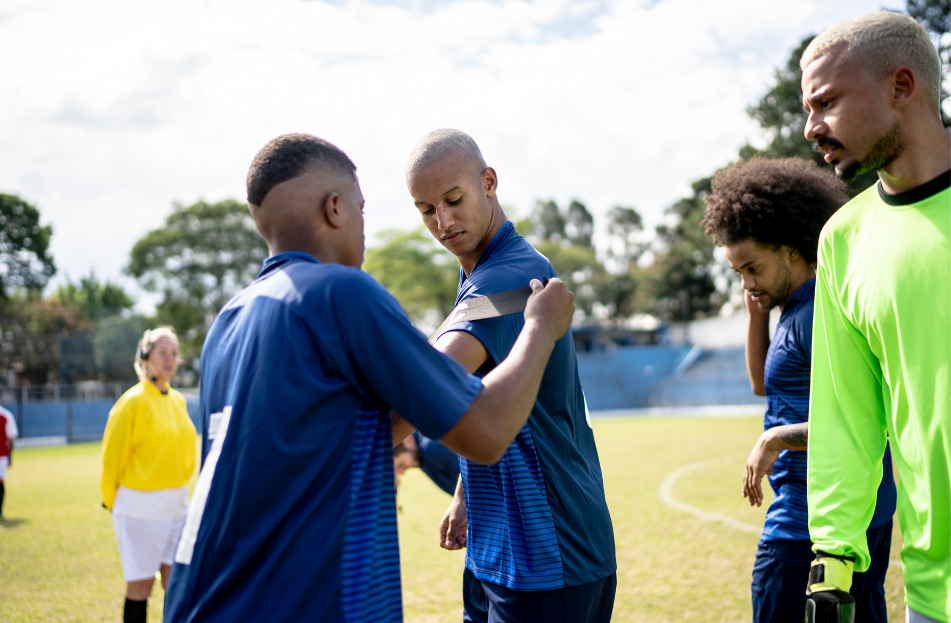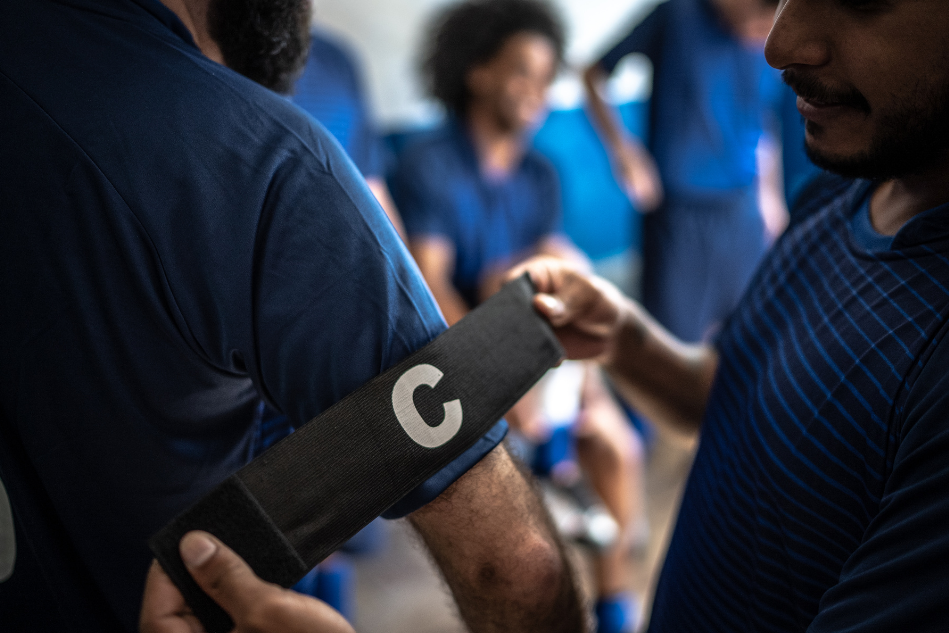How Big Moments Build Character Beyond the Field
The stadium goes quiet. A twelve-year-old steps up to the penalty spot. Every parent holds their breath. This is where youth soccer leadership development happens—not in practice drills, but in moments that matter.
When Young Soccer Players Face Pressure
High-pressure situations in youth soccer create something special. Whether it’s taking a penalty kick in a tied game or making that crucial save as goalkeeper, these moments teach mental toughness in youth soccer that extends far beyond the field.
Here’s what happens when kids step up:
They discover courage under pressure. Taking responsibility when the game is on the line isn’t easy. But when a young player volunteers for that penalty kick, they’re learning what real leadership looks like—not the loudest voice, but the willing heart.
They build unshakeable confidence. Successfully handling pressure situations creates a foundation for life. The goalkeeper who stays composed after conceding a goal develops resilience that translates to handling criticism in school, at work, and in relationships.
They learn that failure isn’t fatal. Miss the shot? The world doesn’t end. This lesson in youth soccer mental strength is invaluable. Kids discover that setbacks are temporary, and trying matters more than perfection.
How Soccer Pressure Moments Develop Future Leaders
Youth soccer character building happens naturally in these high-stakes scenarios:
Emotional Regulation Gets Real
When your heart’s racing and everyone’s watching, you can’t fake composure. Young athletes learn to manage anxiety in real-time—a skill that serves them through job interviews, public speaking, and life’s toughest challenges.

Decision-Making Under Fire
Should the goalkeeper dive left or right? Where should the penalty taker aim? These split-second choices teach youth sports leadership skills that apply everywhere. Kids learn to trust their instincts and commit to decisions.
Responsibility Becomes Personal
There’s no hiding on the penalty spot. Young players learn that leadership means ownership—of both successes and failures. This accountability shapes how they approach school projects, friendships, and future careers.
The Ripple Effect: One Brave Kid Inspires Others
When one player shows courage, it changes the team culture. Soccer leadership development spreads organically. Teammates see that being brave despite fear is normal, acceptable, and admirable.
This creates teams where:
- Taking risks is encouraged
- Mistakes become learning moments
- Supporting each other is the standard
- Everyone feels empowered to step up
What Parents and Coaches Should Remember
Building confidence in young soccer players during pressure situations requires the right approach:
Celebrate the courage, not just the outcome. The kid who missed the penalty showed just as much bravery as the one who scored. Acknowledge that.
Make failure safe. When young athletes know they won’t be criticized for trying, they’re more likely to volunteer for big moments.
Focus on growth, not perfection. “You stayed calm under pressure” matters more than “You should have aimed differently.”
Keep perspective. These are development opportunities disguised as soccer games. The real victory is the character being built.
Youth Soccer Mental Strength: Beyond Wins and Losses
The goalkeeper who faced down that penalty kick isn’t just becoming a better athlete. They’re developing mental resilience that will help them:
- Handle academic pressure in high school and college
- Navigate social challenges with confidence
- Bounce back from professional setbacks
- Lead others through difficult times
Soccer pressure situations are rehearsals for life. They’re safe spaces where the stakes feel high enough to matter, but low enough that failure won’t derail their future.
Creating Leaders, One Moment at a Time
Youth soccer leadership development isn’t about captain’s armbands or being the most skilled player. It’s about those quiet moments when a young person decides to step forward despite their fear.

The penalty kick that went wide taught perseverance.
The save that secured the win built confidence.
The encouraging word to a nervous teammate demonstrated empathy.
These are the moments that shape future leaders—people who understand that courage means acting despite fear, that failure is feedback, and that supporting others makes everyone stronger.
When we give young soccer players opportunities to face pressure, handle responsibility, and grow from the experience, we’re not just developing better athletes. We’re raising confident, resilient, courageous humans who know how to lead when it matters most.
And that’s the real win.
Looking to develop mental toughness in your young soccer player? Encourage them to embrace pressure-filled moments during training and matches, and use small-sided games to create realistic, high-intensity scenarios that build focus and resilience. After the match, a thoughtful post-game cool down helps players reflect on their performance, learn from mistakes, and recover both physically and mentally. With consistent support through both success and setbacks, you’re helping them build character that lasts a lifetime.

